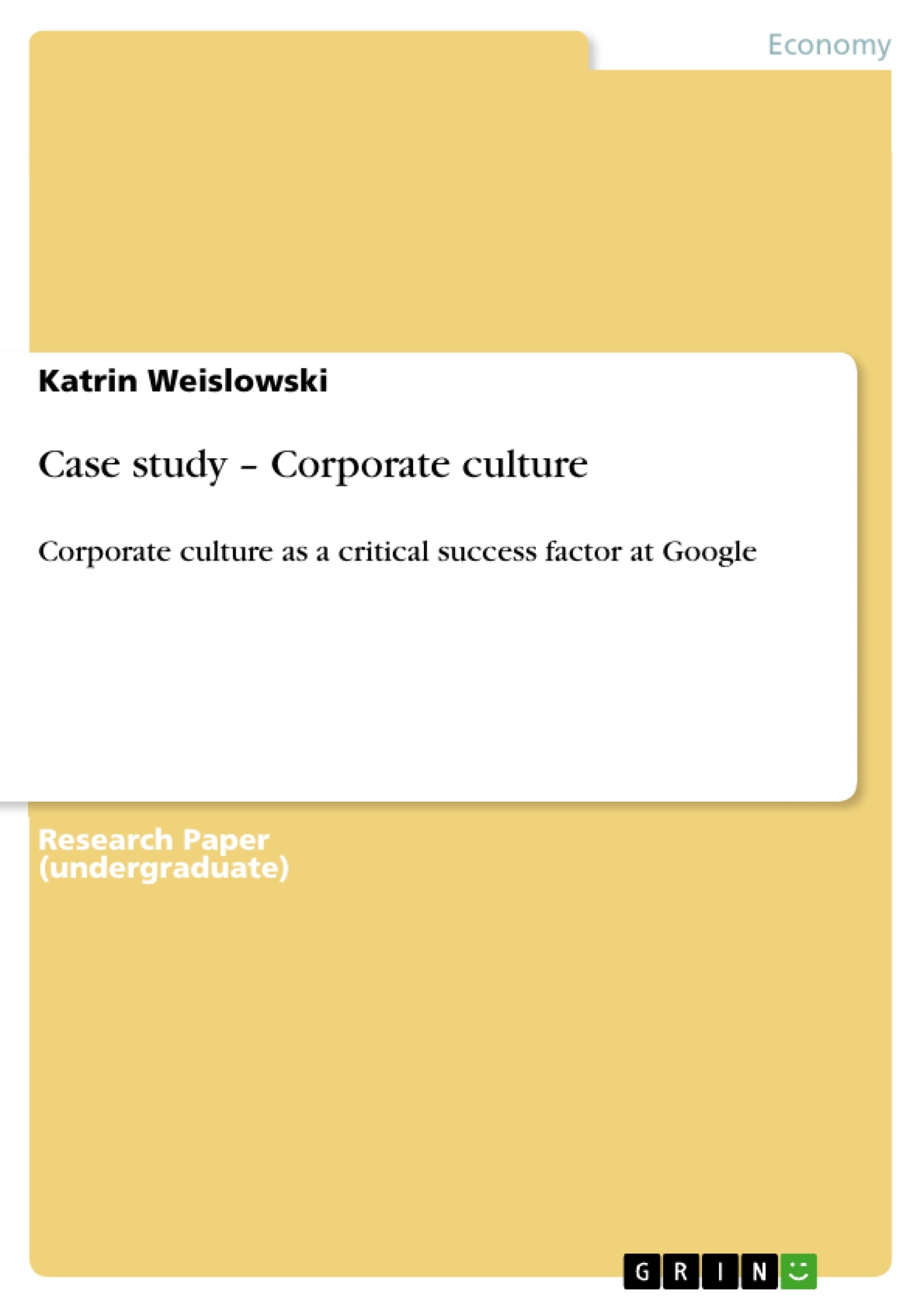In strategic management research particularly the corporate culture is an important and outstanding topic. In the existing literature have crystallized innumerable approaches of the economical cultural research. The corporate culture found special appeal as Japanese companies obtained an improbable export success. Particularly the western industrial nations felt this worldwide expansion as threatening. The typical corporate culture of the Japanese companies is the key to success.1 From this innumerable concepts of corporate culture were developed, which partly come to carry in this work.2 At first corporate culture is described in general and the most important definitions are clarified. Subsequently, an introduction to the forms and goals takes place. The condition for a successful corporate culture is the mission statement of a company, which is described in the subsequent section. Further the measurement (section 2.4) is meaningful to the culture, in order to define the actual deviation from the targets situation of the culture and introduce measures. In section 2.5, the creation of a corporate culture is described. Also this is very important to act target-oriented. The conclusion of the theory part forms the success of a corporate culture, which is the most significant section and in order to that the company will be promoted further. After that follows the case with Google. At first is given an overview of the company and its corporate culture. At last the innovation-oriented culture of Google is described, which led to the success of the company. Finally the summary of the theory part and the case Google takes place.
[...]
1 Von der Oelsnitz, D. (2009): Die innovative Organisation, 2. überarbeitete Auflage, 2009
2 Pullig, K. (2000): Innovative Unternehmenskulturen, 1. Auflage, Rosenberger Fachverlag, 2000
Inhaltsverzeichnis (Table of Contents)
- Introduction
- Problem definition
- Objectives
- Scope of work
- Methodology
- Corporate culture
- Definition
- Forms and goals
- Mission statement of a company
- Measurement
- Creation
- Critical success factor
- The connection to success
- Overview
- The corporate culture of Google
- The innovation-oriented and successful culture inside
- Conclusion
Zielsetzung und Themenschwerpunkte (Objectives and Key Themes)
This case study examines the role of corporate culture as a critical success factor for companies, specifically focusing on Google as a case example. The main objective is to demonstrate how a company's culture can significantly impact its success.
- Definition and key characteristics of corporate culture
- The importance of a strong mission statement in shaping company culture
- The impact of corporate culture on innovation and success
- Strategies for creating and nurturing a successful corporate culture
- Analysis of Google's unique corporate culture and its contribution to the company's success
Zusammenfassung der Kapitel (Chapter Summaries)
The first chapter introduces the problem definition, outlining the significance of corporate culture in strategic management research. It sets out the objectives of the case study, its scope, and the methodology used. The second chapter provides a comprehensive overview of corporate culture, defining it as the sum of individual work habits within a company. This chapter also explores the forms and goals of corporate culture, the importance of a company's mission statement, and methods for measuring and creating a successful culture. The third chapter focuses on Google, providing an overview of the company and its unique corporate culture. This chapter highlights the key factors that have contributed to Google's success, particularly its innovation-oriented culture.
Schlüsselwörter (Keywords)
The case study explores the critical success factor of corporate culture, highlighting the importance of strategy-culture-fit. It examines the connection between corporate culture and company success through the lens of Google's innovation-oriented and successful culture. Key terms and concepts include corporate identity, mission statement, measurement, creation, and critical success factor.
Frequently Asked Questions
Why is corporate culture considered a key to success?
The research highlights that corporate culture, especially seen in the export success of Japanese companies, is a critical factor that promotes innovation and goal-oriented action.
How is Google's corporate culture described in this case study?
Google is presented as a prime example of an innovation-oriented culture that has directly led to the company's improbable success and market position.
What is the role of a company's mission statement?
A strong mission statement is a prerequisite for a successful corporate culture, as it defines the targets and shapes individual work habits within the organization.
Can corporate culture be measured?
Yes, the study mentions measurement as a meaningful way to define the deviation between the actual cultural situation and the target goals, allowing for corrective measures.
What is a "strategy-culture-fit"?
It refers to the alignment between a company's strategic goals and its internal culture, which is identified as a critical success factor for sustainable growth.
- Quote paper
- Katrin Weislowski (Author), 2009, Case study – Corporate culture, Munich, GRIN Verlag, https://www.grin.com/document/158348



